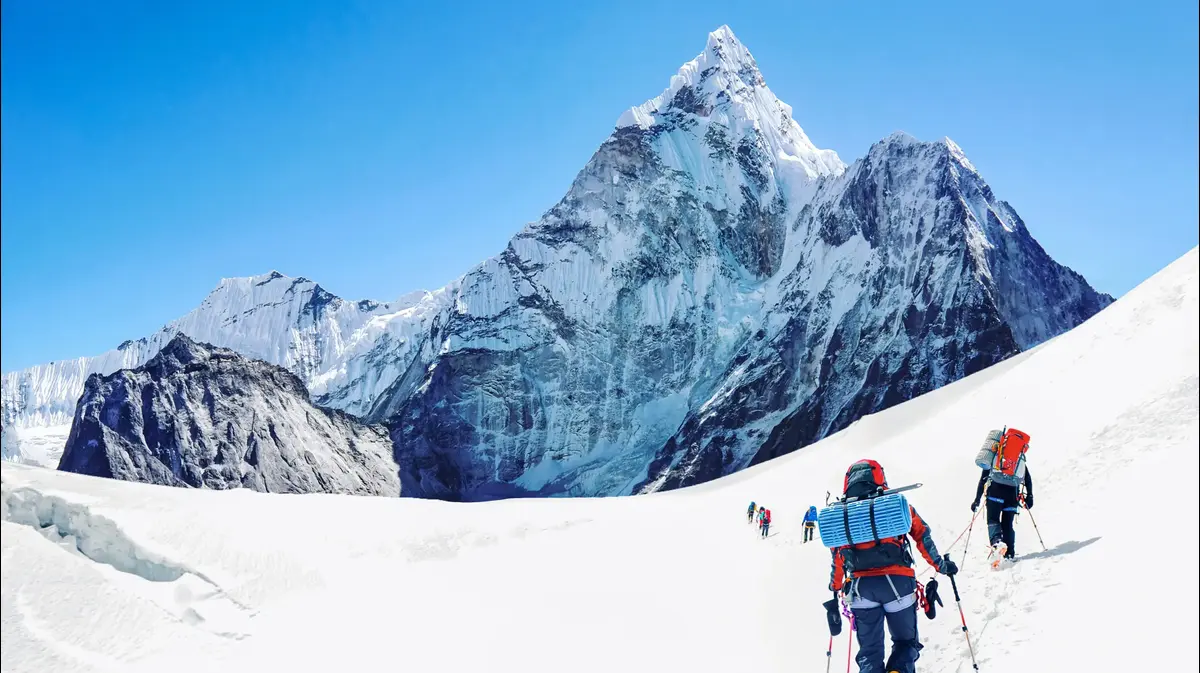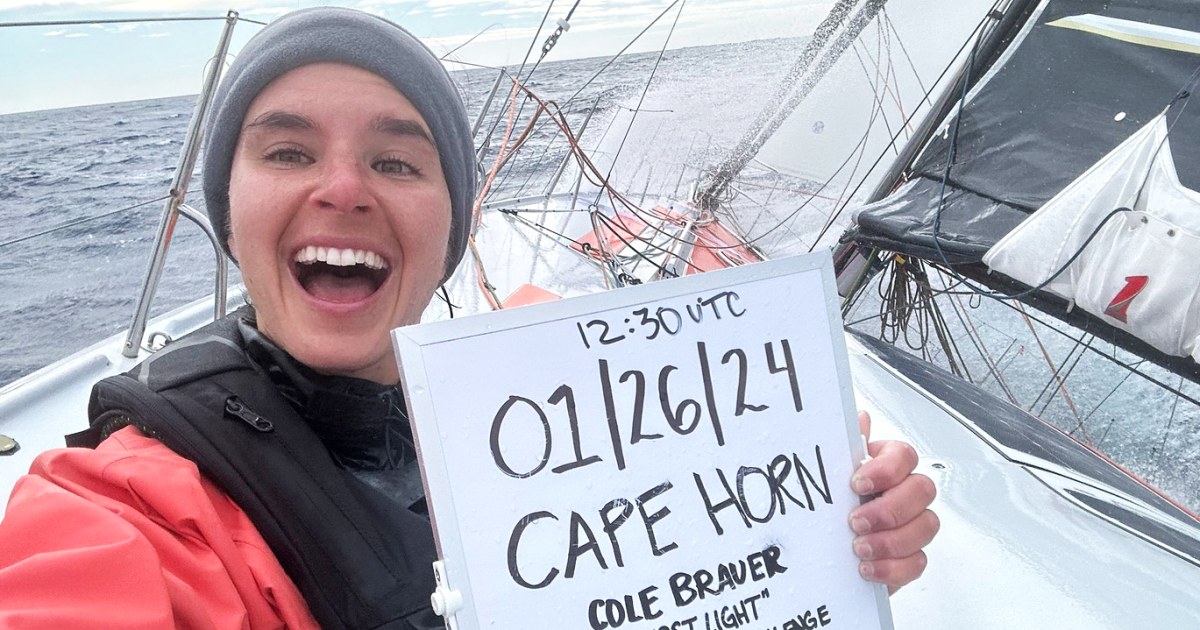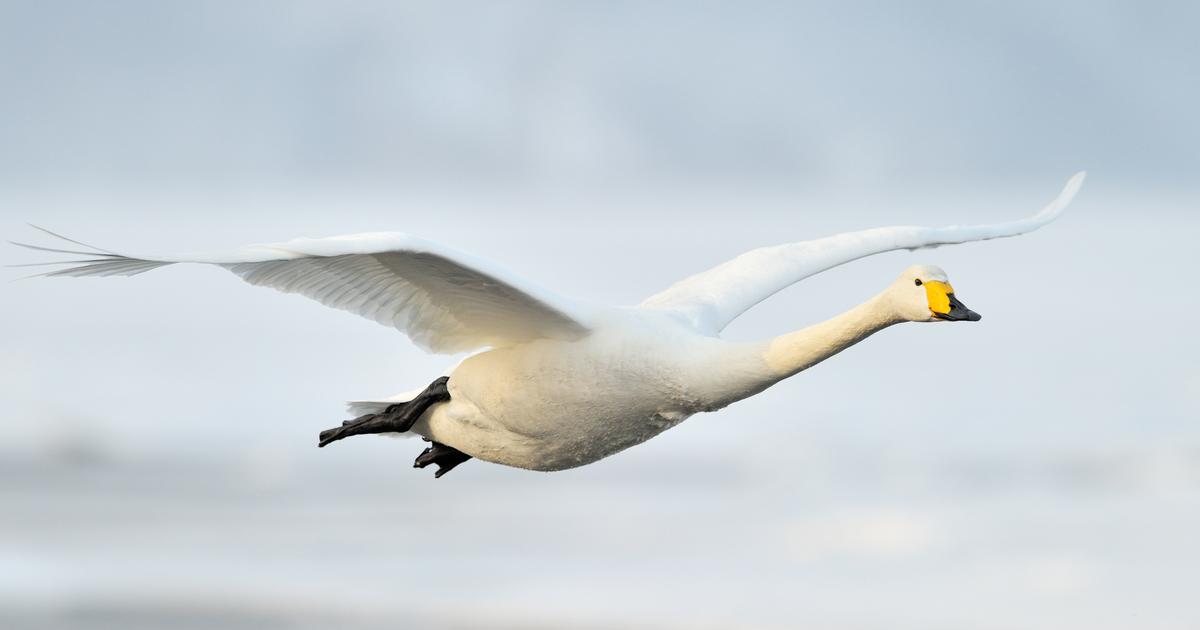Lately nothing seems normal when talking about Everest.
If the effects of the pandemic in 2020 have closed the way to the roof of the planet, avoiding new dramas and agglomerations, the fall of 2019 closed with news that has caused perplexity and unease.
A client, CEO of a Silicon Valley company, has sued his guide for breach of contract and fraud.
Specifically, the plaintiff Zac Bookman claims compensation of $ 100,000 from the guide, like the American, Garrett Madison.
If the lawsuit is successful, and if a judge rules in favor of the plaintiff, the life of the guides and the interpretation of their work would have a dangerous before and after.
From the pioneering epic to high altitude tourism: 70 years of the eight-thousand
Reinventing the profession of mountain guiding
It all started in mid-September, shortly after the guide and his four clients reached the mountain base camp on the south side of the mountain in Nepal.
The most classic and simple route of the mountain is usually faced preferably in spring, when the route presents better conditions.
On the other hand, autumn, after the monsoon snowfalls, is a more dangerous time due to the danger of avalanches that the mountain can present, but the limited presence of mountaineers in the base camp guarantees at least that there are no tragic traffic jams on the way to the top.
In fact, on this occasion only the team of guide Garrett Madison and two Polish groups appeared in the square.
Kilian Jornet also wanted to attack the route, but the conditions left much to be desired: heat, excessive snow accumulation and, above all, the threat of a gigantic hanging ice mass (called serac) that could break off and sweep away the Khumbu waterfall, the dangerous section that gives access to field one.
Madison already knew in advance the disastrous effects that a phenomenon of these characteristics could cause: in April 2014, the fall of a serac smaller than the one that now hung like a sword of Damocles took the lives of 16 Sherpa workers.
Madison himself spent two days searching for the lifeless bodies and told Outside magazine that he was unwilling to go through the same trance again.
All those who were at the base camp on that date credit the extreme danger of the hanging serac.
Apart from the objective of reaching the top, the expedition intended to test garments from a well-known mountain clothing brand, the same one that sponsors Madison.
The firm's own president, Joe Vernachio, and another of his sponsored climbers, Tim Emmett, were among the guide's clients.
The now applicant and another client closed the group.
As soon as they learned of the threat, Vernachio and Emmett decided to pack their bags on the advice of their guide, who since 2009 has placed 60 clients on the roof of the planet.
"We chose security against the ego," he summarized for Outside Vernachio.
Here, however, the problems for the guide began, and this despite the fact that, far from canceling the expedition, he offered to go ahead with his two remaining clients in the hope that the serac would fall shortly and clear the way.
Five days later, Bookman lost his patience and demanded that his guide make an attempt to go to the top or, failing that, that he return part of the $ 69,500 he had paid for his services.
Possibility that this declined by virtue of the signed contract in which it is specified that the amount contributed does not guarantee to step on the top of Everest.
Bookman hinted that his guide's reservations had less to do with the threat from the serac than with the inability of the Sherpas hired by Madison to outfit the Khumbu waterfall as well as the resignation of Emmett and Vernachio.
He felt cheated.
It was then that he decided to report it.
Víctor Ruiz de Erentxun, lawyer, master of mountain law and teacher in the training of guides from Kirolene, in the Basque Country, clarifies that “anyone can sue anyone, for whatever reason”.
“However, Anglo-Saxon laws and their interpretation differ quite a lot from Spanish or French, and there sometimes the word given serves to validate an agreement.
It does not seem that the case of the client and his guide on Everest will prosper, but if so, it is clear that a similar case could occur in Spain, although it is not easy.
I recommend to my students that their clients, especially in risky activities, sign the clauses of their contract specifying the reasons for aborting an outing and the financial compensation or the absence of it in that case ”, he adds.
Raúl Lora, president of the Spanish Association of Mountain Guides, has no record that a client has ever sued his guide in Spain: “yes it is true, that almost all guides have experienced tense moments when an ascent has to be canceled. , either due to danger, bad weather or physical disability of the client, but then we refer to what was signed, and here each guide decides the terms of the contract that it extends to its clients and must comply with them ”.
In this sense, Ruiz de Erentxun observes that “sometimes, the guide decides to turn around due to the dangerous terrain, bad weather or because the client is not physically or technically up to the task, but if the client can demonstrate that he was in However, that you have a previous climbing curriculum, that the weather was good and that other groups reached the goal, a judge may rule in your favor and the guide must compensate you financially.
This does not mean that the case creates jurisprudence: a judge from another province could rule against the plaintiff.
The reality is that 100 years ago no one went to the mountains as a hobby, and in Spain 30 years ago no one paid to go to the mountains, so for legal purposes it is a very new profession with many gaps ”.
If the complaint against the North American guide (who has found a pro bono lawyer to defend him) proceeds and decides against the defendant, a very strange circumstance, Raúl Lora considers that mountain guides “would have a very difficult time making the right decisions when you know that they can report you… ”One wonders what would weigh more in their good judgment, if the fear of an accident or the fear of being reported. A mountain guide cannot guarantee the safety of his clients: he is paid instead to manage the risk inherent in his activity, to make complex, technical and humane decisions in a dangerous environment. Your life and that of your clients depend on your decisions and in no case should these be conditioned by factors other than your experience or your evaluation of the general circumstances. "Even if you pay a lot of money, the road to the top cannot be bought," reflected Tim Emmett, referring to those who do not take no for an answer.

/cloudfront-eu-central-1.images.arcpublishing.com/prisa/6DKLIDHHFNFPZD6KRMYNWC2SVE.jpg)






